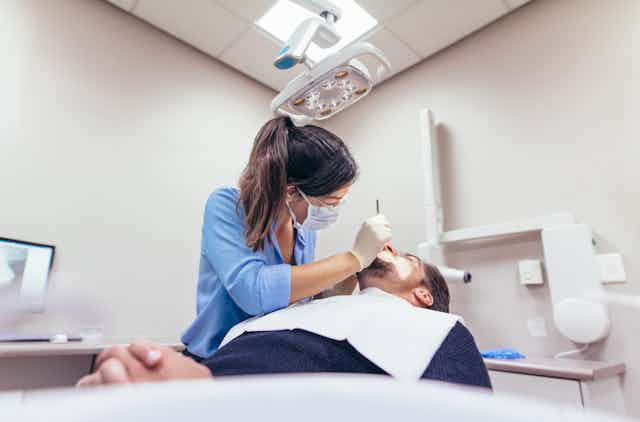The Labour Party announced as part of their general election manifesto that it will introduce free dental check ups in a bid to encourage people to seek dental care and reduce pressures placed on GPs and A&E departments.
The proposal to remove all band one charges for NHS dental care will mean the public will be entitled to a free dental check up, X-rays, scale and polish. At the moment most (or nearly all) patients do not get these services without incurring a cost – though children and pregnant women already qualify for free dental treatment under the NHS.
The introduction of free dental check-ups is undoubtedly a step in the right direction towards reducing barriers to accessing dental care. But unfortunately, the decisions people make regarding whether to see a dentist or not are not this simple. It’s certainly not all about the cost of treatment – and this is something the next government will need to address if they are to tackle the UK’s oral health crisis.
Read more: You're probably brushing your teeth wrong – here are four tips for better dental health
Research, dating as far back as the 1980s has shown the barriers and decision making behind seeking dental care is a complex area and has a huge impact on how people access services. Dental anxiety, the availability of dentists, bad experiences in the past, a confusing NHS dental care system, work and other life priorities are just some of the reasons why people avoid seeking dental care.
And above all that, research shows that a lack of perceived need for dental care plays a prominent role in determining whether to see a dentist for a check up. You wouldn’t go and see a GP if we weren’t feeling unwell, so why would seeing a dentist be any different? For some people, dental pain has to be present – often for a long period of time – before they will even begin to consider getting help.
‘Free teeth MOT’
All this together means that offering someone who is dentally anxious, and not experiencing any current dental pain a free check-up is highly unlikely to result in them seeking care. Equally a free dental check up to someone working long hours, balancing family life alongside work, with no local NHS dentists available simply won’t be enough.
The Labour Party quote that “around 135,000 patients per year are estimated to attend A&E with dental problems”. This is a figure based upon research we conducted at Newcastle University and shows the scale of the problem with dental care.

Other research has also found that “around 380,000 patients with toothache chose to head to their GPs who cannot provide dental treatment”. The reasons why people try to get dental care from non-dental professionals, such as GPs, is more complicated than just avoiding a dental charge. Indeed, it relates to knowledge about dental symptoms and healthcare services, and the availability of dentists compared to GPs.
Oral health crisis
The Conservative Party’s response to Labour’s proposal, that “dental check-ups are already free for those who don’t have the means to pay”, also doesn’t solve the problem and shows a lack of understanding. Indeed, many who are eligible for free dental care do not realise that they are. Or don’t claim free treatment at the fear of being fined.
If any of the parties wish to fully address the ongoing oral health crisis then simplistic changes, such as a free check-up, won’t suffice. The British Dental Association have produced their own manifesto on what the next government needs to change regarding dental care, including improvements with dental workforce, current NHS contracts, dental regulation, national campaigns and investment in high quality national research.
Although arguably even more needs to be done to overcome the range of complicated barriers the public face when seeking dental care. A free dental check-up may be the first part of this complex jigsaw, but it’s certainly not enough.


